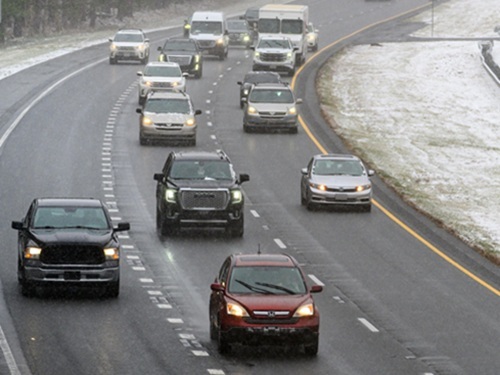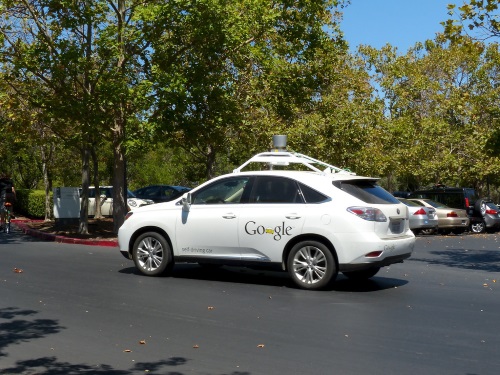The Coalition for Future Mobility sent a letter to Congressional leadership on February 3 calling for more support of legislation “designed to advance U.S. leadership in the safe development and deployment of automated vehicles.”
[Above photo by Google.]
Noting that the United States is “a global leader in the development of these potentially life-saving technologies,” the coalition stressed in its letter that, “we have an opportunity to work collaboratively and chart a course that sustains U.S. leadership and innovation of these critical safety and mobility solutions for decades to come.”

The coalition – formed in 2017 and comprised of 45 groups and companies representing automakers, suppliers, tech companies, state and local governments, and advocates for seniors, veterans, and persons with disabilities – warned in a statement that, without bipartisan support AV legislation, the United States “risks falling behind” in providing Americans a safer, more environmentally friendly, accessible, and equitable future in transportation.
“Other countries are moving forward with AV policies, and the United States – home of self-driving technology – should not allow itself to lose its leadership position,” the group noted. “Our coalition members stand ready to work with you to make this important legislation a reality.”

However, a recent survey of 3,380 car shoppers conducted by Autolist.com in early 2021 found car shoppers harbor “trepidation” towards advanced driver-assist systems or ADAS technology and self-driving systems
That survey – mirroring the results of several previous polls – found many consumers don’t expect their next vehicle to have any sort of hands-free or self-driving capabilities, and that they are split on whether such systems even make vehicles safer in the first place.
“Some degree of trepidation here is probably a good thing,” noted David Undercoffler, editor-in-chief of Autolist.com, in a blog post. “It indicates that when consumers do begin to interact with increasingly capable ADAS and hands-free systems, they’ll still feel the very necessary need to stay vigilant even if their hands aren’t on the wheel.”
 Nation
Nation
Registration Open for AASHTO’s Winter Rail Meeting
December 19, 2025 Nation
Nation

